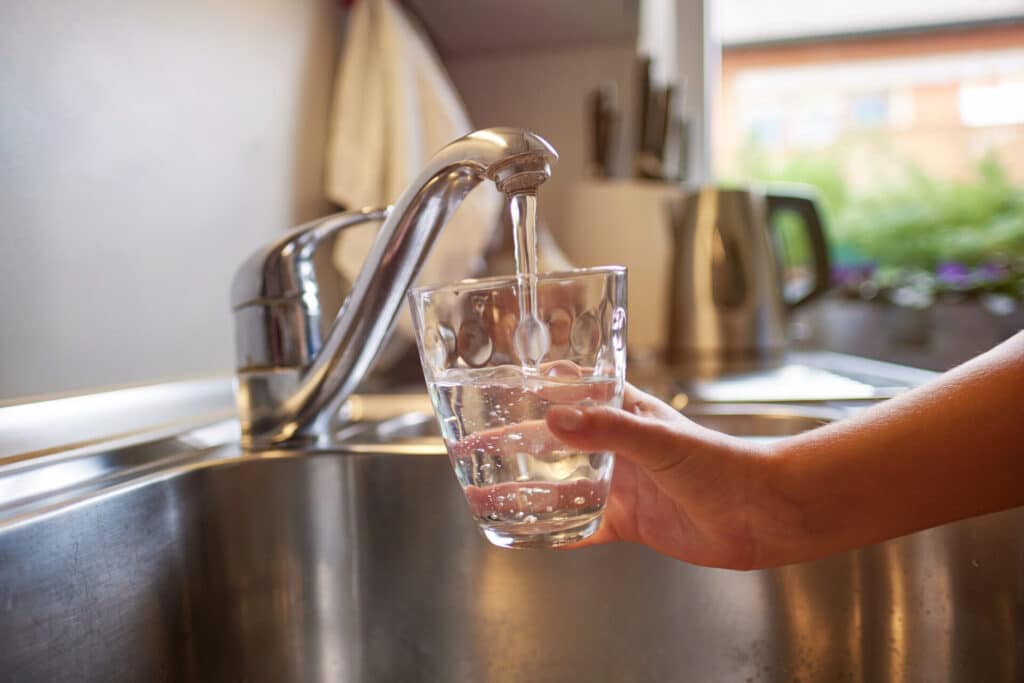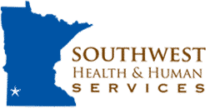The environmental health water laboratory is located in our Lyon County office.
Know what’s in your water!
A safe and plentiful water supply is essential for humans and animals, yet many private water supplies are contaminated. Some contaminants have recommended levels based on the taste desirability of water, however Coliform Bacteria, Nitrate-Nitrogen, Sulfates and Sodium have safe levels based on possible health effects.
Water quality cannot be determined simply by looking at it. To ensure your drinking water is safe for use, collect a sample from your water supply to be analyzed by a certified laboratory. Southwest Health and Human Services (SWHHS) Laboratory is certified by the Minnesota Department of Health for analysis of the following drinking water quality parameters:
Total Coliform Bacteria / E. Coli Bacteria / Nitrate-Nitrogen
The SWHHS Environmental Health Laboratory provides water analysis services to all of southwestern Minnesota. Water analysis fees are comparable to other laboratories in this area. In addition to water analysis we are here to answer any questions you might have regarding health effects from contaminated water, water quality concerns and possible solutions for treatment of contaminated water. SWHHS also provides water sample collection services for real estate transactions, loan requirements or those that are unable to collect a sample. Free water testing is available to those that meet the income guidelines and are a resident of Lincoln, Lyon, Murray, Pipestone, Rock or Redwood Counties. The free tests include Coliform Bacteria, Nitrate-Nitrogen and a choice between Sulfate or Fluoride analysis.

The SWHHS laboratory accepts water samples for testing Monday through Thursday, 8 am to 3:30 pm. SWHHS offices and phone numbers can be found under the Locations Tab on the website. If you need to make special arrangements please contact the laboratory in advance. Water sampling kits can be picked up from any of our SWHHS offices. We can also mail a water sampling kit directly to you. Test kits cost $5.00 each. (Tax included). Approved sample collection bottles and instructions for collecting the water sample are included in the kit. There is also information about what tests we offer and why you might want to have your water tested.
THE LAB CAN NOT ACCEPT SAMPLE COLLECTION BOTTLES NOT PROVIDED BY THE LAB.
Water testing results will be mailed to you upon analysis of your water sample. All water analysis results are kept confidential. SWHHS does not use this information for public purposes without your permission. Fees for water testing services and sample collection are as follows: (Prices are reviewed annually and are subject to change)
Standard Tests Cost
- Coliform Bacteria $25.00
- Fluoride $18.00
- Nitrate-Nitrogen $20.00
- Chloride $14.00
- Sulfates $17.00
- Sodium $18.00
- Total Iron $15.00
- Nitrite-Nitrogen $20.00
- Hardness $14.00
- Dissolved Solids $14.00
- All 10 Tests $140.00
Description of Water Tests Offered by SWHHS
-
TOTAL COLIFORM BACTERIA
Organisms found commonly in soils and in the intestines of humans and animas. A positive Total Coliform Bacteria test indicates contamination by human or animal waste or from the surface water of soil. Any Presence of Coliform Bacteria is Considered Unsafe. The presence of Total Coliform Bacteria indicates the possibility of other disease causing organisms (called pathogens) to be present in the water. E. Coli, a strain of Total Coliform Bacteria, is tested for if the test comes back positive.
-
NITRATE-NITROGEN
Occurs naturally but is also the end product from the breakdown of human or animal waste or fertilizers. Nitrate levels above 10 mg/L can cause a condition commonly known as "Blue Baby Syndrome" (Methemoglobinemia) in infants less than 6 months old. This condition occurs when Nitrate is ingested and then converted to Nitrite by stomach bacteria. The Nitrite then reacts with hemoglobin in the blood to form methemoglobin. The presence of methemoglobin reduces the ability of the blood to carry oxygen. The baby's skin will turn a bluish color. Suffocation can occur and if left untreated the infant can die. "Blue Baby Syndrome" has been known to occur after just one day of exposure to high Nitrate levels. Excessive Nitrate-Nitrogen may also affect livestock health, causing Vitamin A deficiency, scours, abortion or loss of production. The cause of high Nitrate levels and source should be investigated. Do Not Boil the Water. Boiling the water will not remove the Nitrate, it can actually increase the concentration of Nitrate in the water.
-
NITRITE-NITROGEN
The intermediate reduced form of Nitrogen and is the causative agent of Methemoglobinemia mentioned above. It is seldom seen in high concentrations in groundwater. The recommended concentration level of 1 mg/L has been set by the Minnesota Department of Health.
-
SULFATE
A naturally occurring ion present in groundwater, particularly in Southwestern Minnesota. Sulfate concentrations above 250 mg/L can act as a laxative. Most people become acclimated to the Sulfate after a couple of days and the symptoms disappear. Infants should not be given water with a Sulfate concentration above 400 mg/L.
-
HARDNESS
The amount of Calcium and Magnesium or Total Hardness in groundwater. No adverse health effects result from drinking hard water, but Total Hardness levels over 500 mg/L can retard the cleaning action of soaps, and can deposit a scale on containers, cookware, etc. as water evaporates.
-
FLUORIDE
Occurs naturally in ground water, however usually not in levels optimal for tooth development in children. Beneficial dental health effects have been observed with Fluoride levels between 0.9 to 1.5 mg/L. Levels above 4.0 mg/L are considered unsafe for tooth development.
-
CHLORIDE
Present in all potable water, but when Chloride concentrations exceed the recommended limit of 250 mg/L, a salty or brackish taste may be detected, which can be undesirable. High Chloride concentrations in water may indicate possible pollution from waste sources.
-
SODIUM
Indicates the presence of salts. Sodium in water may be a concern for people on low-Sodium diets. A recommended level of less than 20 mg/L Sodium in drinking water is recommended for people on low-Sodium diets.
-
TOTAL DISSOLVED SOLIDS (TDS)
General measure of the minerals dissolved in water, and can be expressed in milligrams per liter (mg/L) or millimohs Conductivity. (mmohs) TDS concentrations greater than the U.S. Public Health Service recommended level of 500 mg/L can cause diarrhea, especially in people not used to drinking from that water supply.
-
IRON
Iron greater than 0.3 parts per million will cause staining to fixtures and clothing.
Water can dissolve lead from lead pipes, lead-soldered copper pipes, or brass plumbing components when the water stands in the plumbing system for more than a few hours at a time. Infants, children and pregnant women are specially vulnerable to the potential health effects of Lead. Too much Lead can damage the nervous system, red blood cells and kidneys. You can minimize your exposure to Lead in your drinking water by letting the water run until you feel the water getting colder (at least 30-60 seconds) before using it for drinking or cooking. Lead testing requires a special treated bottle that is provided for you by our agency. The sample is sent to an outside laboratory for analysis. Results may take up to 2 weeks to receive. Please ask for assistance from our Environmental Health Laboratory when testing for lead.
Sampling Services
These services are available upon request. Many real estate transactions or home loans require a third (neutral) party to collect the water sample. Our charge for collecting a water sample is $50.00 plus the IRS standard mileage rate for business miles driven for the collection.
